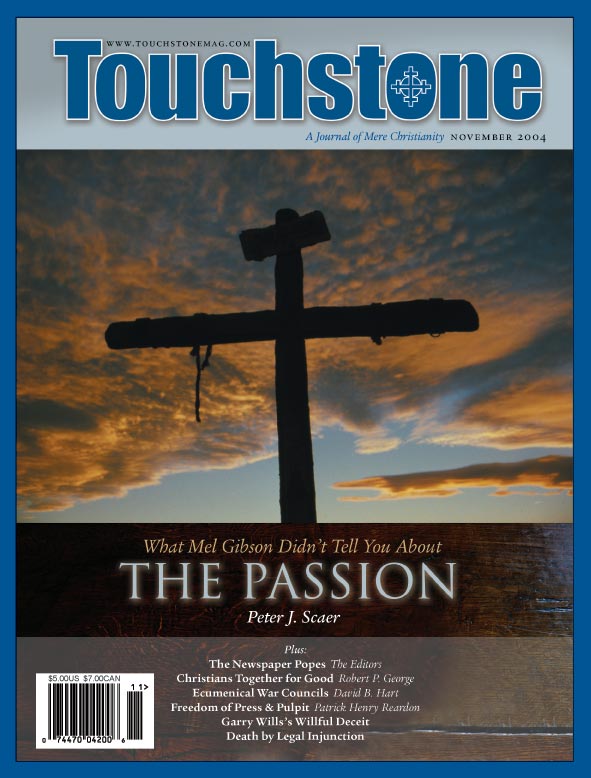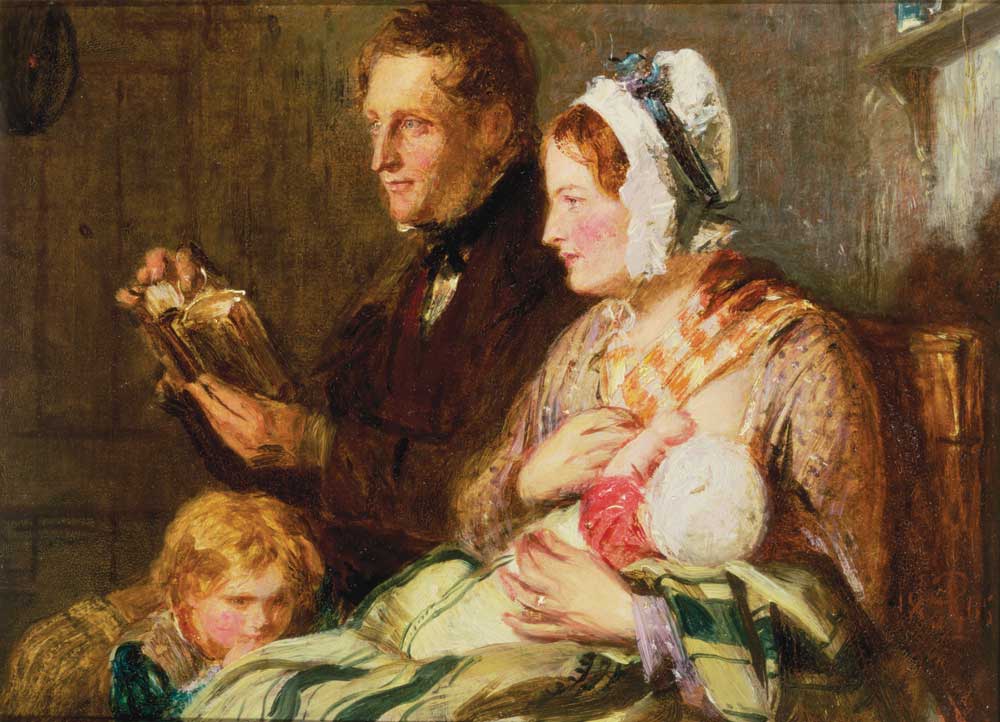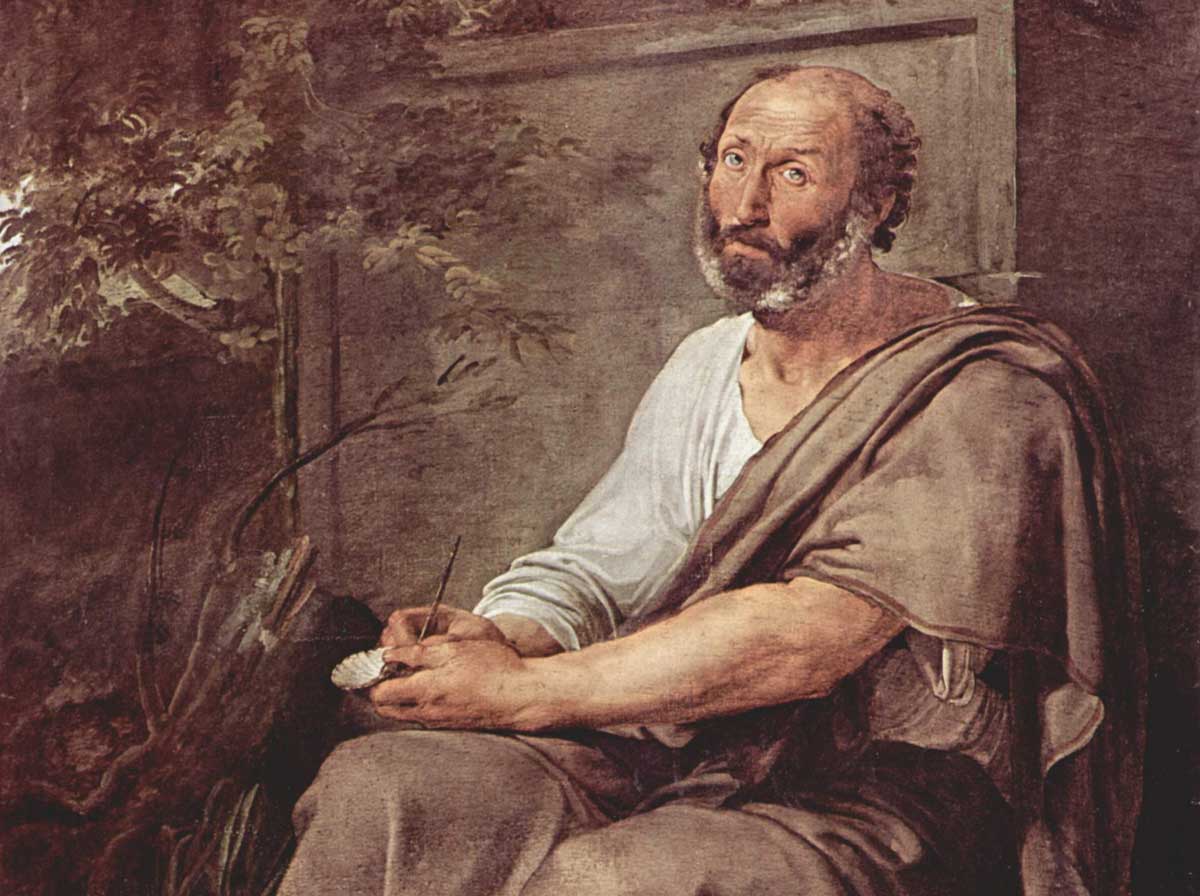Paper Popes
When the Media Decide What the Church Should Teach
In Virginia, a Catholic bishop announces that those who hold office in the Catholic Church should adhere to Catholic doctrine, and he dissolves a diocesan committee that dissented from the church’s teaching about homosexuality. A newspaper editor chastises the bishop and asserts that all such questions need to be kept open.
In St. Louis, the archbishop requires the only Catholic parish that owns its own property, independent of the archdiocese, to cease that arrangement. The media scold the archbishop for “legalism” and “rigidity.”
In New Jersey, a girl with celiac disease cannot digest Communion hosts made from wheat. The diocese suggests that she receive Communion by sipping from the chalice or receiving a tiny piece of the sacred host. Her mother asks the church to authorize hosts made from rice flour, and the media make it a major issue.
Also in St. Louis, the archbishop receives the vows of several women who have committed themselves to live as consecrated virgins. This event, seemingly quite minor amidst the day’s news, merits a front-page article in the local newspaper and a cartoon ridiculing the practice on the editorial page.
A syndicated national columnist and Pulitzer Prize winner who is not a Catholic wants to “send the Vatican hearing aids” because a recent Vatican letter fails to endorse the complete feminist agenda.
We are so used to these media blitzes—directed most frequently but by no means exclusively at the Catholic Church—that we scarcely think twice about them. What else, after all, is new? We expect such people to attack the pro-life movement, the “religious right,” home-schooling parents, Focus on the Family, the Southern Baptist Convention, the Catholic bishops (when they speak on life issues), and believing Christians in general. We expect them to make a lot of noise doing so and have blocked out the sound.
But in reality these media blitzes involve something quite troubling, and are not simply examples of the criticism Christians may expect to receive in a pluralistic society. Although in each case those who criticized the church did so in the name of “freedom,” their own agenda is actually a threat to religious liberty.
The Church’s Rights
We addressed one aspect of this in “Faith-Based Restrictions,” the lead editorial for the September issue: the increasing tendency of courts to treat religious freedom as merely the freedom to perform a set of rituals and ceremonies, and thereby to deny the right of a religious body to order its own life and participate in public affairs. Here we are addressing the ideology of the “enlightened” class that works to the same end: not only the exclusion of orthodox Christians from the public square, but the removal of their authority over their private squares.
In the controversy over the policy of some bishops that pro-abortion politicians should not receive Communion, the media have at least an apparent excuse for their interest: the claim (false though it is) that bishops should not “interfere” in politics. But the fact they obscure, and indeed effectively deny, is that the church has the right, indeed the obligation, to set its own conditions for membership.
James Hitchcock is Professor emeritus of History at St. Louis University in St. Louis. He and his late wife Helen have four daughters. His most recent book is the two-volume work, The Supreme Court and Religion in American Life (Princeton University Press, 2004). He is a senior editor of Touchstone.
bulk subscriptions
Order Touchstone subscriptions in bulk and save $10 per sub! Each subscription includes 6 issues of Touchstone plus full online access to touchstonemag.com—including archives, videos, and pdf downloads of recent issues for only $29.95 each! Great for churches or study groups.
Transactions will be processed on a secure server.
more from the online archives
calling all readers
Please Donate
"There are magazines worth reading but few worth saving . . . Touchstone is just such a magazine."
—Alice von Hildebrand
"Here we do not concede one square millimeter of territory to falsehood, folly, contemporary sentimentality, or fashion. We speak the truth, and let God be our judge. . . . Touchstone is the one committedly Christian conservative journal."
—Anthony Esolen, Touchstone senior editor











